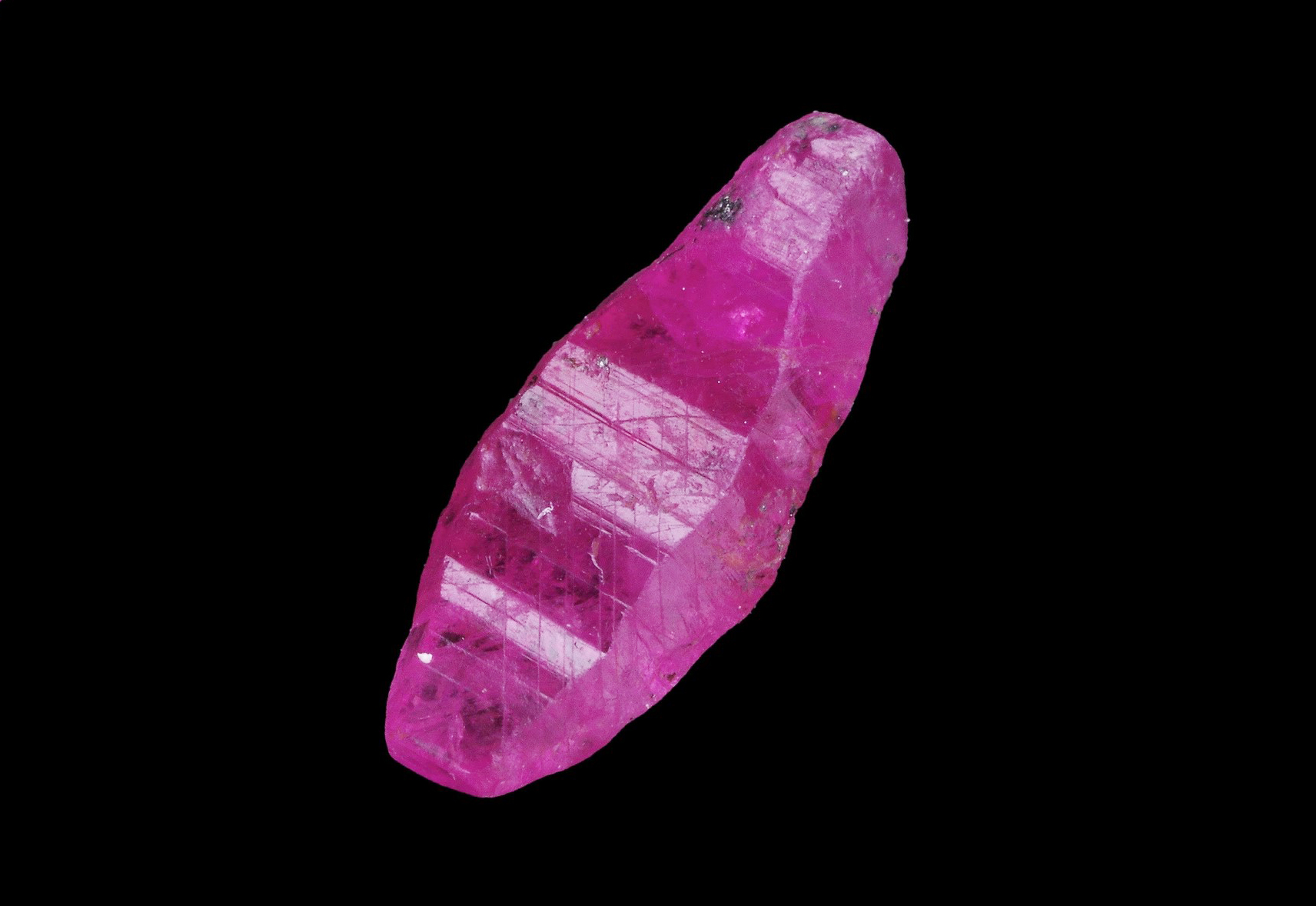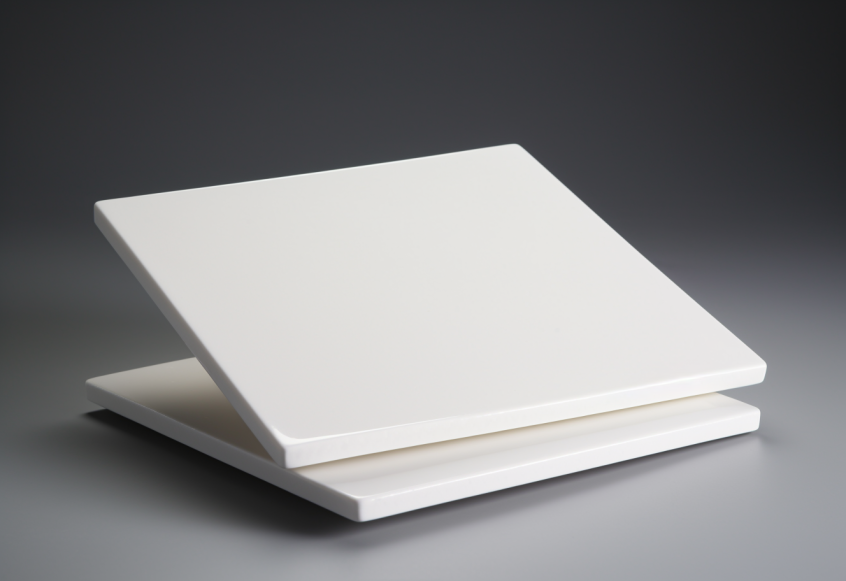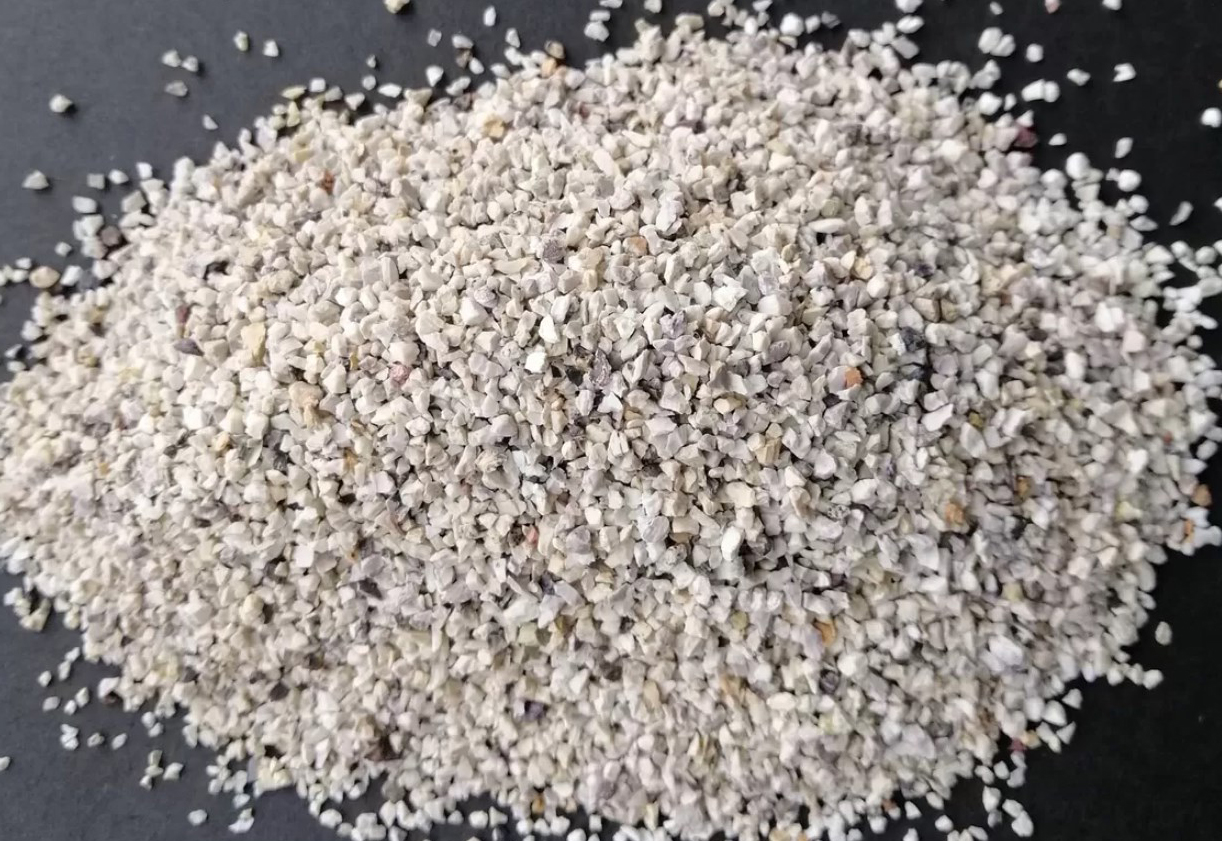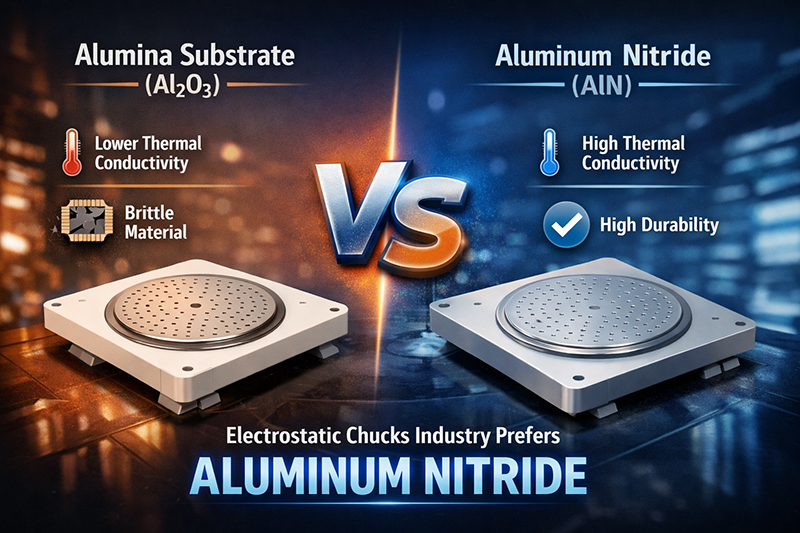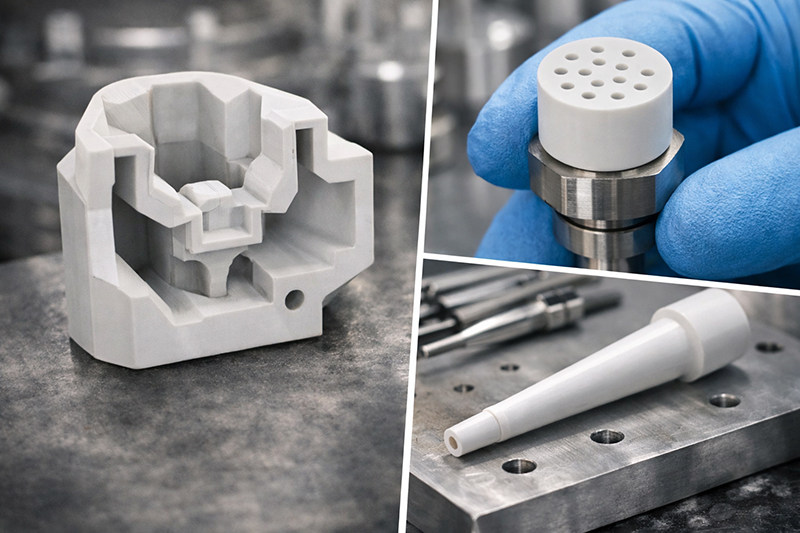Corundum vs. Alumina vs. Cordierite vs. Mullite: A Deep Dive into Ceramics
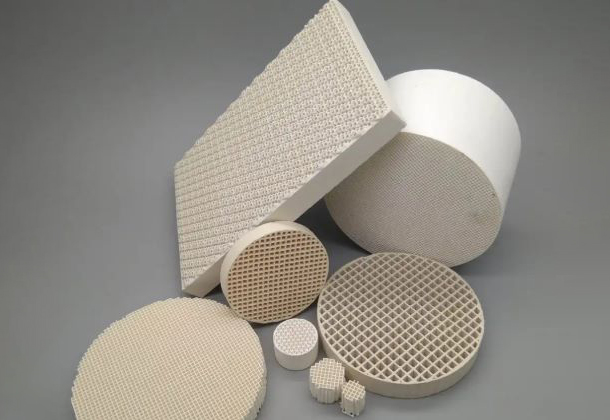
Introduction
In the realm of modern engineering and design, selecting the optimal ceramic material is not merely a matter of choice but a crucial decision that significantly impacts the performance, durability, and aesthetic appeal of the final product. Our commitment to quality and innovation is at the forefront of our mission, guiding us to provide only the finest ceramics—Corundum, Alumina, Cordierite, and Mullite.
Each material is selected for its unique properties, ensuring that our customers receive products that are not only at the cutting edge of technology but also tailor-made to meet the exacting demands of their applications. By choosing our ceramics, customers are investing in a legacy of excellence and a future where quality and performance go hand in hand.
Overview of Each Ceramic
A. Corundum
Corundum stands as a paragon of natural hardness and durability among ceramics, second only to diamond. This crystalline form of aluminum oxide is not only prized for its exceptional abrasion resistance but also for its variety of colors, which include the precious gemstones ruby and sapphire. In industrial applications, corundum is indispensable for cutting tools, abrasives, and protective coatings, offering unmatched longevity and efficiency in operations where wear resistance is critical. Its natural resilience translates into products that offer superior performance and aesthetic appeal.
B. Alumina (Aluminum Oxide)
Alumina, or aluminum oxide, is renowned for its excellent thermal properties and electrical insulation capabilities. With a high melting point and considerable strength, it serves as the backbone of a vast range of industrial applications, from electronic substrates and insulators to cutting tools and medical devices. Its versatility stems from its purity and ability to withstand harsh environments, making alumina-based products a staple in industries demanding reliability and precision. The adoption of alumina enhances product longevity, safety, and performance, cementing its role as a cornerstone material in advanced ceramics.
Further Reading: Everything You Need to Know about Alumina Ceramics
C. Cordierite
Cordierite is celebrated for its remarkable thermal shock resistance, which makes it an ideal material for applications undergoing rapid temperature changes. This magnesium aluminum silicate stands out in the ceramic world for its low thermal expansion coefficient, ensuring stability and integrity under thermal stress. It's extensively used in kiln furniture, heat exchangers, and as a catalyst substrate in automotive exhaust systems. Products made with cordierite benefit from enhanced durability and efficiency, especially in high-temperature processes, offering significant advantages to manufacturers and end-users alike.
Further Reading: An Introduction to Cordierite Ceramic
D. Mullite
Mullite, an alumino-silicate with a rare balance of high-temperature stability, strength, and thermal shock resistance, is a critical material in refractory applications. Its exceptional qualities make it suitable for furnace linings, kiln furniture, and aerospace engineering. Mullite's low thermal conductivity and excellent dielectric strength also make it valuable in electronic and electrical insulator applications. By incorporating mullite into products, manufacturers ensure superior performance in the most demanding environments, providing customers with reliability that stands the test of time.
Comparative Analysis: Corundum vs. Alumina vs. Cordierite vs. Mullite
Chemical Properties
The foundation of each ceramic's superior performance is its chemical composition. Corundum and Alumina, both primarily composed of aluminum oxide (Al2O3), offer exceptional hardness and thermal properties, with Corundum showcasing a hardness of 9 on the Mohs scale and Alumina slightly lower at 8.5-9.
This chemical purity translates to outstanding durability and efficiency in applications such as abrasives and electronics. Cordierite (Mg2Al4Si5O18) and Mullite (3Al2O3·2SiO2), with their unique compositions, provide specialized properties like exceptional thermal shock resistance for Cordierite and high-temperature stability for Mullite, making them indispensable in their respective application domains.
Physical Properties
The hardness and durability of these ceramics underscore their application versatility. Corundum, with its Mohs hardness of 9, is unmatched in abrasion resistance, ideal for cutting tools and protective coatings. Alumina, closely following with a hardness of 8.5-9, excels in high-temperature environments.
Cordierite's thermal shock resistance is attributed to its moderate hardness (7-7.5) and low thermal expansion coefficient (2.0×10⁻⁶ 1/°C), ideal for kiln furniture and automotive catalyst supports. Mullite combines strength (6-7 Mohs hardness) with excellent thermal properties, suitable for refractory linings and aerospace engineering.
Thermal Properties
Corundum and Alumina demonstrate superior thermal stability, with melting points at 2050°C and 2072°C, respectively, making them suitable for high-temperature processing. Cordierite stands out for its excellent thermal shock resistance, attributed to its low thermal expansion coefficient (2.0×10⁻⁶ 1/°C), beneficial in applications experiencing rapid temperature changes. Mullite, with its melting point at 1840°C and a thermal expansion coefficient of 5.3×10⁻⁶ 1/°C, offers balanced performance in high-temperature environments.
Mechanical Properties
The strength and toughness of these materials are pivotal for their use in demanding applications. Corundum's high compressive strength, supported by its Mohs hardness of 9, is optimal for abrasive environments. Alumina's mechanical strength makes it a choice material for structural components where rigidity and durability are required. Cordierite's unique combination of thermal shock resistance and mechanical strength caters to applications with thermal cycling, while Mullite's high-temperature strength supports its use in structural and aerospace applications.
Applications
The specific properties of Corundum, Alumina, Cordierite, and Mullite tailor them to distinct applications. Corundum's hardness makes it ideal for abrasives and cutting tools.
Alumina's electrical insulation properties suit it for electronic substrates and biomedical devices. Cordierite's thermal shock resistance is perfect for kiln furniture and heat exchangers, whereas Mullite's high-temperature stability is crucial for refractory linings and aerospace components. Matching these materials to their applications ensures products that meet the highest standards of performance and durability.
The table below provides a succinct overview of each ceramic's key attributes, aiding in understanding their unique advantages and suitability for various applications.
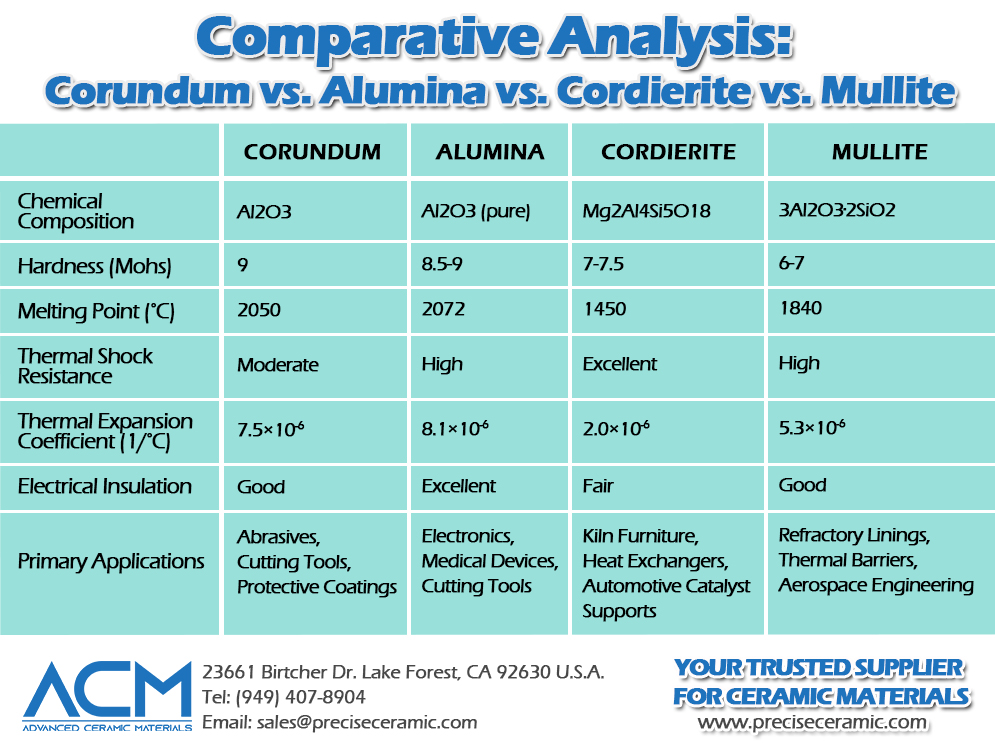
Conclusion
As we've journeyed through the remarkable world of ceramics, the superior qualities of Corundum, Alumina, Cordierite, and Mullite have been laid bare. Each material, with its unique composition and unparalleled properties, stands ready to elevate your projects and products to new heights of performance and durability.
Advanced Ceramic Materials (ACM) is dedicated to providing cutting-edge solutions that meet the evolving needs of industries worldwide. By choosing us, you access a wealth of expertise and a range of products that embody innovation and quality. We invite you to discover how our advanced ceramics can transform your projects. For detailed information or to discuss specific requirements, reach out to ACM. Together, we can navigate the future of technology with ceramics that set new standards of excellence.
{{item.content}}
LEVE A REPLY
{{item.children[0].content}}
{{item.content}}
LEAVE A REPLY
SUBSCRIBE OUR NEWSLETTER
- How PBN Crucibles Ensure the Quality of GaN & SiC Epitaxial Materials
- SiC vs. Quartz Focus Rings: A Cost and Performance Analysis for Advanced Etch
- AlN Ceramic Substrates: Enabling Next-Gen Electrostatic Chucks
- The Amor of Semiconductor Tools: Why High-Purity Al2O3 & AlN Are Preferred for Plasma Process Chambers
- Silicon Carbide - Ultra-High Temperature Ceramics for Extreme Environments









